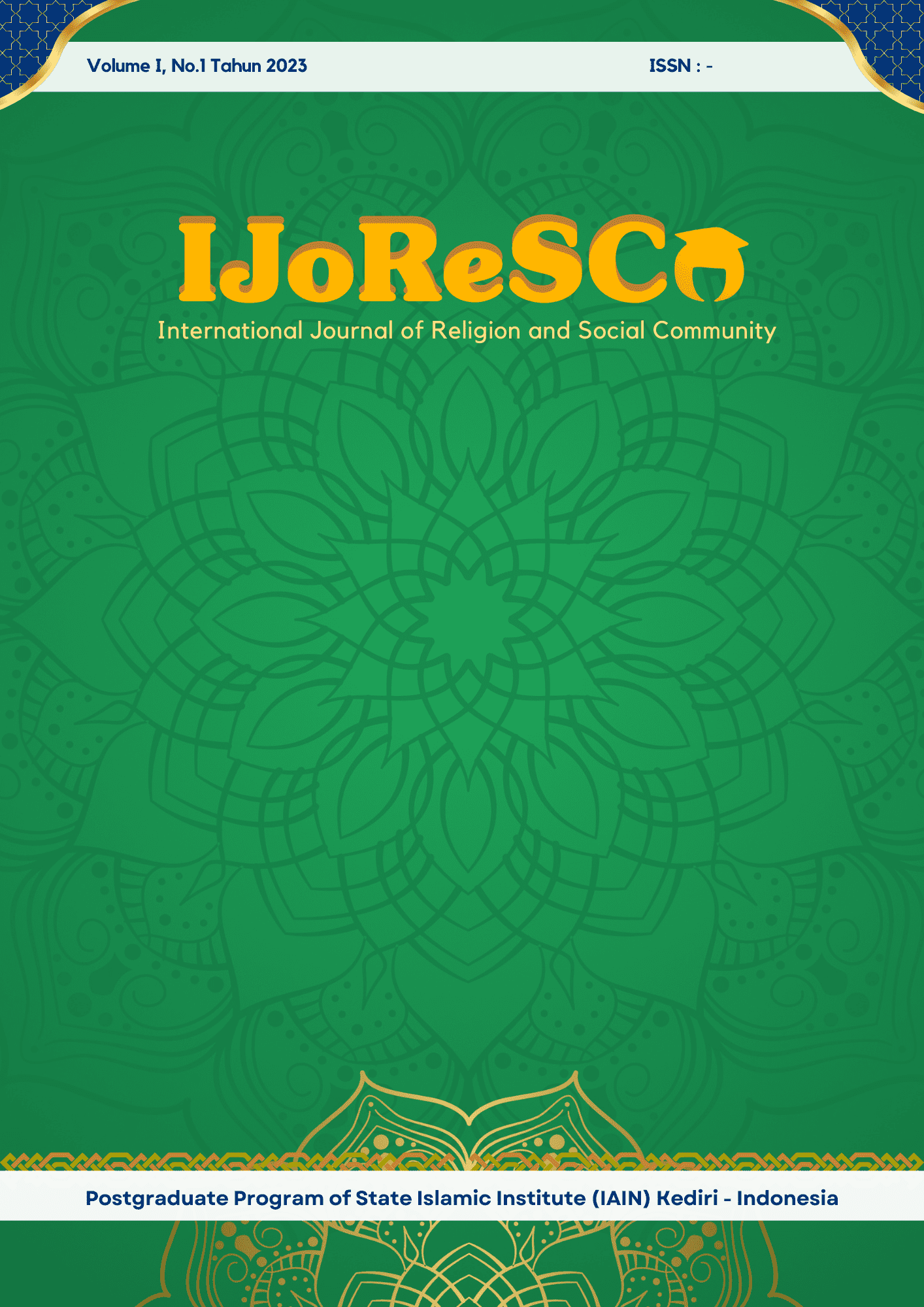Phenomenology Of Wetonan Tradition In Jarak Village, Plosoklaten, Kediri, Through The Lens Of Islamic Traditionalism
DOI:
https://doi.org/10.30762/ijoresco.v1i1.3414Keywords:
Weton, Islam, SocietyAbstract
Weton tradition is a tradition to commemorate a person's birthday based on the Javanese calendar with its markets, such as Legi, Pon, Pahing, Wage, and Kliwon. On Weton day, the family will prepare various treats as a form of Gratitude. The meaning of the wetonan tradition is to pray for the baby to avoid danger and be given a long life and blessings. The wetonan tradition is generally carried out when the baby is 35 days old. In Javanese calculations mention selapan. Calculations in the Javanese calendar are also based on a combination of Gregorian calendar calculations and calculations of days in the Javanese calendar. In this study we used the Qualitative Descriptive method. The reason researchers choose Qualitative Descriptive Research is because researchers want to describe the situation that will be observed with Qualitative Descriptive Method is a research method based on facts and there is in fact a natural object and occurs in the village of Jarak Plosoklaten Kediri as the object of research. The purpose of this research is to examine more deeply how the wetonan tradition phenomology that occurs in the village of Jarak Plosoklaten Kediri. The result of this research is all the activities that exist are the meaning of Wetonan Weton or Wetonan Tradition is a birthday party that is held every 35 days. The purpose of the Weton tradition.
References
Ahmad, Baharuddin, Tradisionalisme Islam, Pewawancara: Budi Munawar-Rachman, Jurnal Ulumul Qur'an, Vol III No. 3, 1993
Ashari Beni, Tinjauan Hukum Islam Terhadap Tradisi Weton ; Jurnal Mabahits.
Ainur Rofiq, “Tradisi Selametan Jawa Dalam Perspektif Pendidikan Islam”, dalam ATTAQWA: Jurnal Ilmu Pendidikan Islam, Volume 15, Nomer 2 (September 2019), h. 96
Echols, John M., dan Hassan Shadily, Kamus Inggris Indonesia, Jakarta: Gramedia, 1979, cet. XII
Hatsin, Abu. 2007. Islam Dan Humanisme: Aktualisasi Humanisme Islam Di Tengah Krisis Humanisme Universal. Yogyakarta: Pustaka Pelajar.
Kaelany, Islam dan Aspek-aspek Kemasyarakatan, cet I (Jakarta: Bumi Aksara, 1992), h. 125
Mahmudah Siti,2007, Pandangan sejarah NU Tentang PostTradisionalisme, Ulul Albab, vol.8 No. 1, 2007
Muhammad Sulthon, “Interelasi Nilai Jawa dan Islam Perspektif Ekonomi” dalam Darori Amin (ed) Islam dan Budaya Jawa, Yogyakarta: Gama Media, 2000, h. 247.
Nashihin, H. 2019. Analisis Wacana Kebijakan Pendidikan (Konsep Dan Implementasi). CV. Pilar Nusantara.
Rohma Alfiatur,2022. Fenomena petung pada masyarakat islam jawa. skripsi
Shadily, Hasan, Ensiklopedi Indonesia, Jakarta: Ichtiar Baru Van Hoeve, 1984
Tafsir web, terjemahan surat Al-Maidah ayat 50 https://tafsirweb.com/1934-surat-al-maidah-ayat-50.html
Uskuri Lailal Muna dan Lutfiah Ayundasari, “Islam Kejawen: Lahirnya Akulturasi Islam Dengan Budaya Jawa di Yogyakarta”, dalam Jurnal Integrasi dan Harmoni Inovatif Ilmuilmu Sosial, Vol. 1, No. 3 (2021).
Yahya dkk,2022, Akulturasi Budaya pada tradisi wetonan dalam prespektif islam, Amorti: Jurnal StudiIslam InterdisiplinerISSN 2962-9209Vol. 1, No. 1, Juli2022, pp. 55-67
Widiastuti, “Analisis Swot Keberagaman Budaya Indonesia”, dalam Jurnal Ilmiah WIDYA, Volume 1, Nomor 1 (Mei-Juni 2013), h. 8.
Zaini Muchtarom, Islam di Jawa (dalam Perspektif Santri dan Abangan), Jakarta: Penerbit Salemba Diniyah, 2002, h. xxiv.













